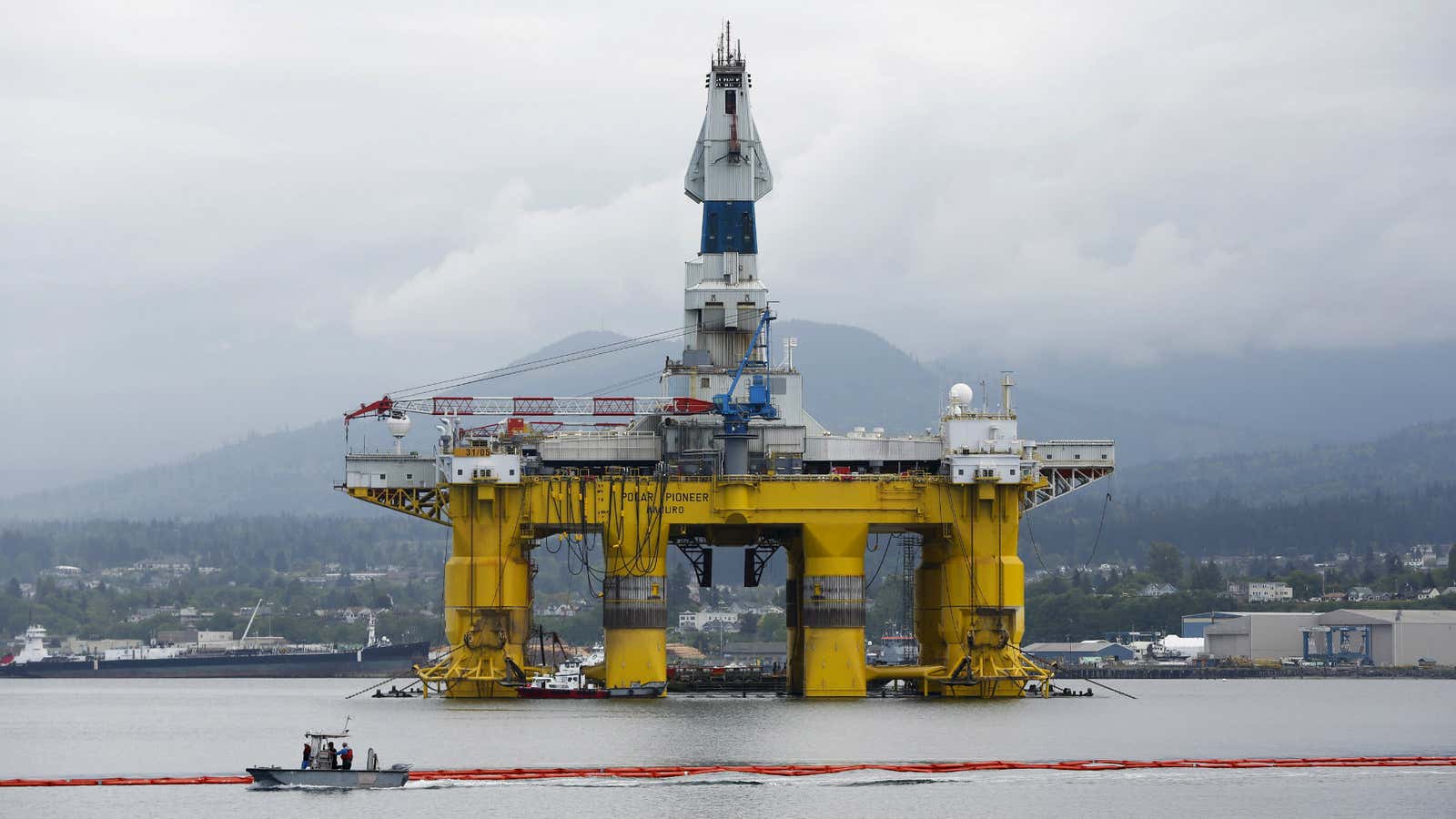US president Barack Obama changed his mind on drilling for oil off America’s southeast coast.
In an updated five-year plan for oil and gas leases on the continental shelf, the Department of the Interior backed off of plans to test for reserves, citing ”current market dynamics, strong local opposition and conflicts with competing commercial and military ocean uses.”
“We heard from many corners that now is not the time to offer oil and gas leasing off the Atlantic coast,” said Secretary of the Interior Sally Jewell in a statement.
The plan was originally unveiled in June 2014 as an item in the Federal Register that described a “strategy to responsibly develop new information about the significance and location of oil and gas resources” from Delaware to northeast Florida.
The item immediately drew protest not just from environmental groups, but from cities and towns along the coast worried that deepwater drilling near their shores might lead to a major incident like the Deepwater Horizon explosion that the Environmental Protection Agency says sent 4 million barrels of oil gushing into the Gulf of Mexico and hurting tourism from Texas to Florida. In March 2015, former Charleston, South Carolina mayor Joseph P. Riley decried the possibility of oil exploration offshore on local television station WCIV:
“The vitality of aquatic ecosystems and the beauty of our region is non-negotiable for our fishers, shrimpers, and crabbers, our tourists, and our coastal residents’ way of life. Furthermore, given that we would not support eventual commercial oil or gas drilling off our coast following the exploration process, surveying activities would be a wasteful investment of time, money and energy.”
Naturally, the American Petroleum Institute, an energy industry lobbying group, was unhappy: “This is not how you harness America’s economic and diplomatic potential,” said API president Jack Gerard in a statement.
The administration’s change of heart marks another victory for environmentalists. Although low oil prices have lessened some of the urgency towards developing renewable resources (so many SUV sales!), they’ve scored some wins against fossil fuels. Obama in November decided to veto the Keystone XL pipeline that would have transported crude from Albertan tar sands in Canada to refineries in the Gulf. Last month the president proposed a $10-per-barrel tax on oil that probably won’t pass Congress but retains its symbolism.
This doesn’t mean all oil and gas exploration off the US coast will be curtailed. The Gulf of Mexico is still fair game. “The proposal focuses potential lease sales in areas with the highest resource potential, greatest industry interest, and established infrastructure,” Jewell said in the Interior Department statement. Still, further restrictions might be on the way near Alaska, where the government says Native American groups have registered considerable protest.
